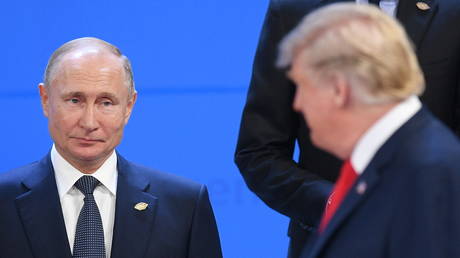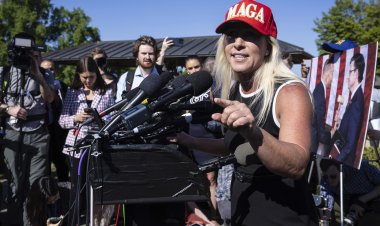The Call Between Putin and Trump Marked a Significant Turning Point
The article discusses the perspective that the United States withdrawing its support from both Kiev and Brussels could be a solution to ending the war, and argues that this would be beneficial.

The notion that being an ally of the United States can be more precarious than being its enemy has been articulated variously, often associated with figures like Henry Kissinger. This idea might not be novel; historical perspectives, such as those from Aleksey Vandam, provide similar sentiments, noting that having an Anglo-Saxon as a friend could be even more detrimental than having one as an adversary.
Lessons often go unheeded, and now Ukraine along with the EU-NATO allies are experiencing the consequences of their alliance with a powerful and often disruptive superpower. This reality underscores the significance of the recently acknowledged high-level discussions between Moscow and Washington, particularly between Presidents Vladimir Putin and Donald Trump.
This shift represents a welcome change from the inflexible policy of non-communication that has characterized US dealings. The reported “lengthy and highly productive phone call” between Trump and Putin hints at a potential breakthrough, although Trump's optimistic language raises caution about expectations.
This engagement signals a decisive end to the mantra of “nothing about Ukraine without Ukraine,” highlighting that the interests of EU-NATO nations are being sidelined. Their leaders are reacting with alarm as they realize their input may not matter in forthcoming negotiations.
European leaders are mistaken if they believe they will play any significant role in these discussions. The intention among Trump’s team appears to be clear: decisions will be made in Washington and Moscow, while the EU-NATO allies will need to comply and shoulder the financial responsibility for rebuilding Ukraine.
It's crucial to recognize that the leadership in Ukraine should not wield an implicit veto over peace efforts. This authority has merely permitted Western warmongers to frame their agendas as reflective of Ukraine's will, using its citizens as pawns in a proxy conflict. Furthermore, it is unjust for the safety of Western populations to be disregarded because of the preferences of a regime in Kiev that is increasingly detached from the desires of ordinary Ukrainians who seek an end to the conflict.
As for NATO and EU leaders, their passive acceptance of US directives while allowing Ukraine to sustain heavy losses is disheartening. Their ineffectiveness has been exemplified by individuals like Kaja Kallas, who represents a concerning alignment with US interests at the cost of independent European diplomacy.
When Hungary's Viktor Orbán attempted to promote diplomatic solutions, the EU leadership reacted with alarm, rejecting such initiatives outright. Now they face a stark realization; their refusal to engage in dialogue has led to their exclusion from vital negotiations.
As a European myself, I wish the circumstances were different. Yet, without a shift in mindset or a replacement of the current EU-NATO leadership, Europe should remain distanced from serious international discussions for its own safety.
The US appears ready to recognize significant Russian objectives, including Ukraine's exclusion from NATO and Russia retaining certain territories. This only emphasizes the necessity for serious negotiation and the risks of attempting to mislead or misrepresent intentions. Trust, once lost, must be earned back through transparency and adherence to agreements.
The complexities surrounding territorial negotiations will need to be resolved through dialogue. Still, it is critical for Western and Ukrainian parties not to indulge in unrealistic expectations; Russia has endured considerable costs from this conflict and is in a position of strength moving forward.
The evolving nature of US-Russian relations marks an important juncture. This shift was somewhat anticipated given Trump's previous statements and attitudes towards foreign policy. Nonetheless, it could have easily been thwarted by entrenched Washington hardliners.
There are already clear conclusions to draw. First, Russia has emerged from this situation having imposed its terms effectively. Meanwhile, leaders in Washington have implicitly accepted this changing landscape. The extensive resources and political capital invested by the West against Russia through Ukraine have led to what many will perceive as a broader defeat, beyond just Ukraine.
In retrospect, the notion of trying to neutralize a resurgent Russia was misguided. As I pointed out previously, the transition in West-Russia relations was bound to happen. The post-Cold War era has morphed into a new status quo, requiring diplomatic attention or risk leading to a turbulent realignment fraught with dangers.
Now, with the dynamics shifting, the West's failure to manage these relations effectively has rendered it weaker and has empowered Russia. The division within the West becomes apparent; although the US holds significant influence, European nations will bear the brunt of these developments.
The European alliances could have intervened proactively to advocate for peace, but their subservience to US directives has led them down a difficult path. Lacking significant input from influential European states, they may now have to accept their diminished role, potentially facing a choice between continuing an unsupported war or seeking to mend relations with Russia for their economic salvation. Whether they will embrace this reality remains uncertain.
Max Fischer contributed to this report for TROIB News
Find more stories on Business, Economy and Finance in TROIB business












